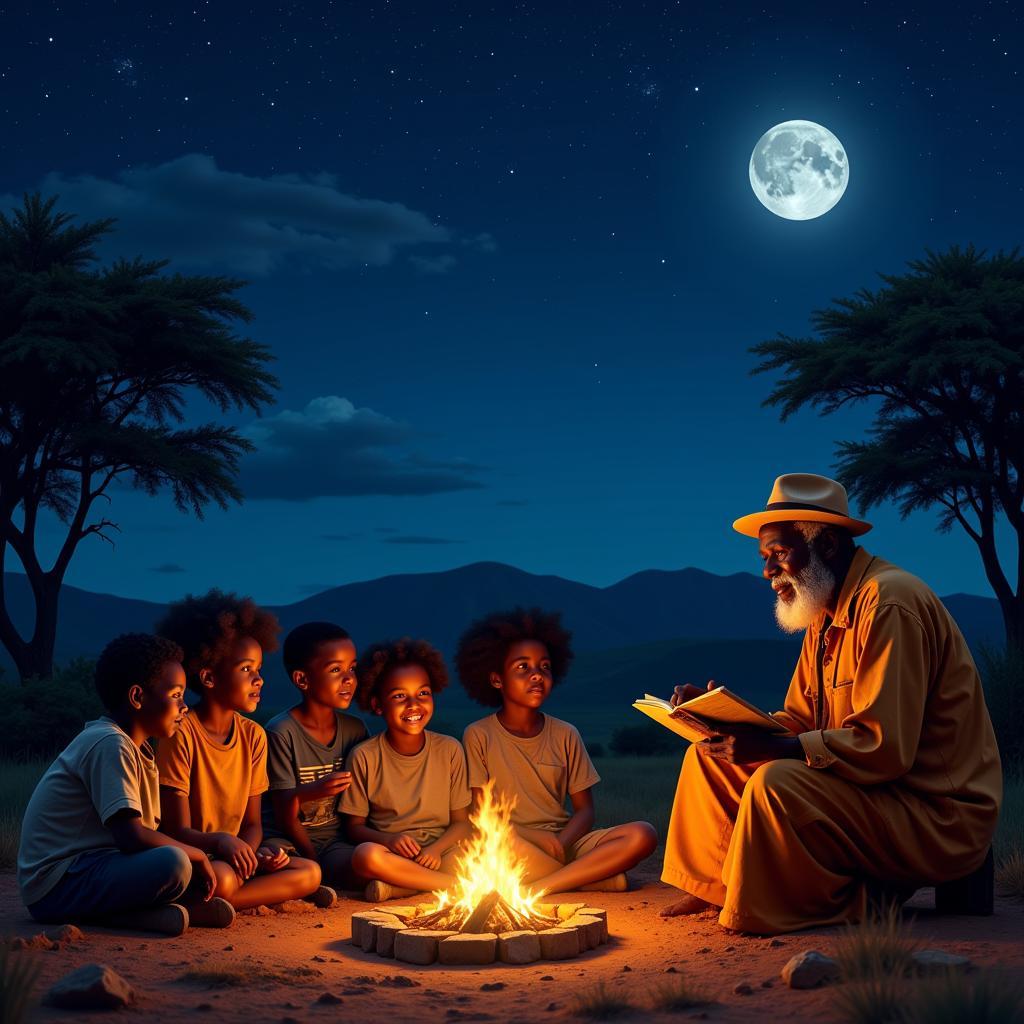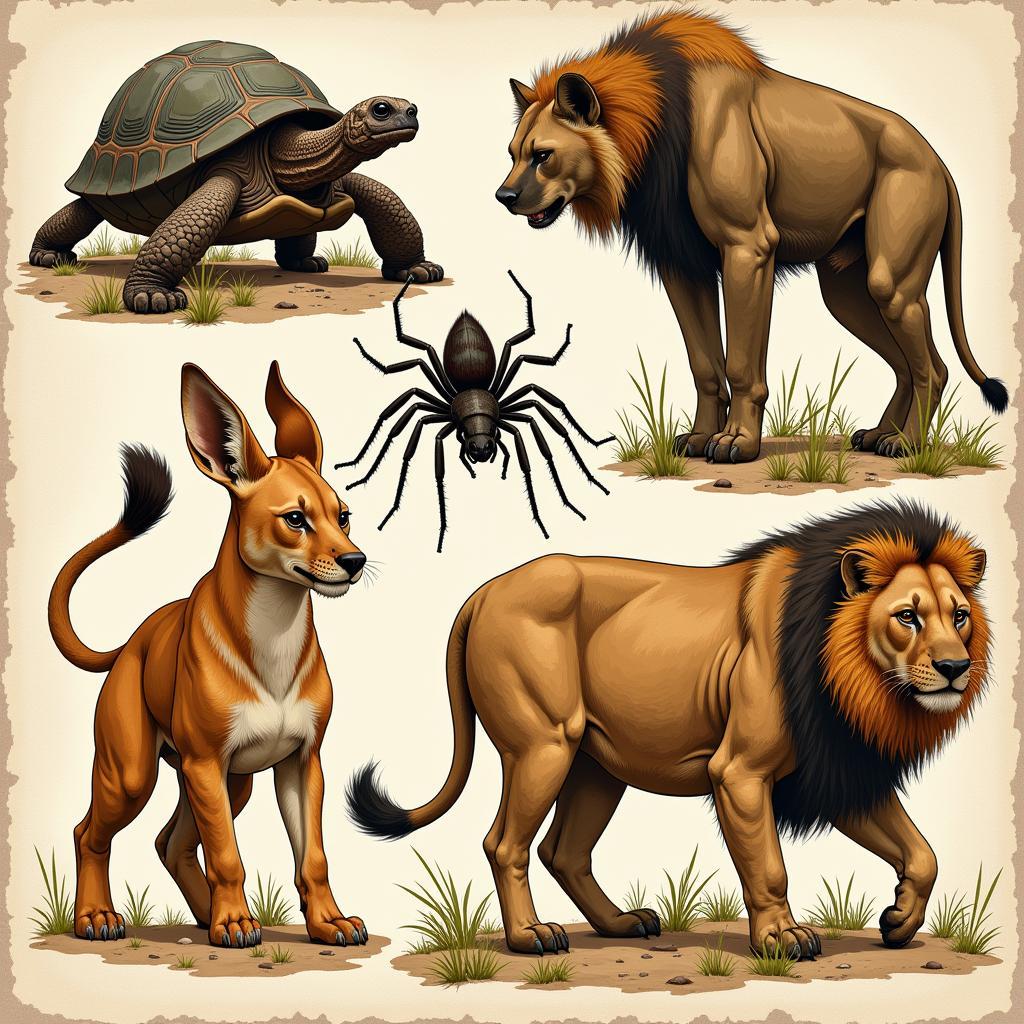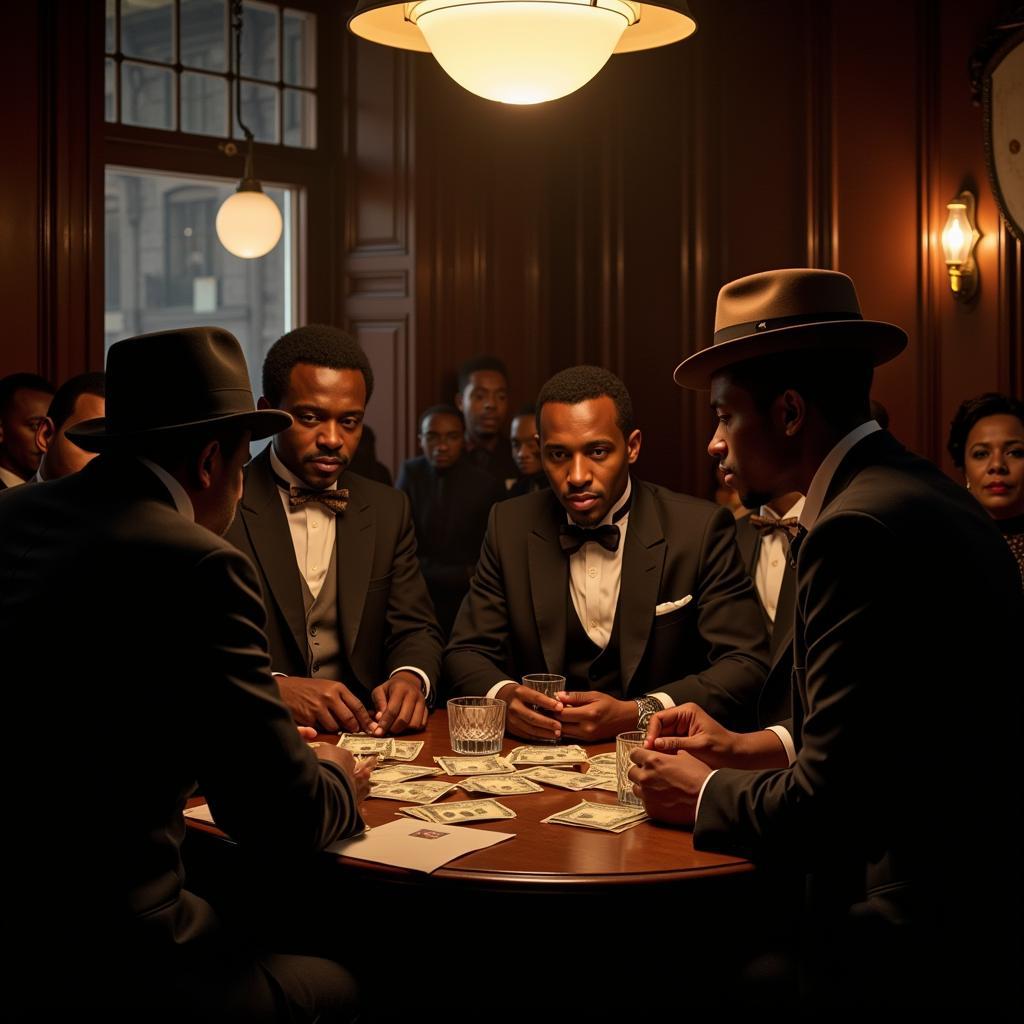Exploring the Magic of African Folktale Stories
African folktale stories are more than just bedtime stories; they are vibrant tapestries woven from the threads of history, culture, and tradition. Passed down through generations, these tales offer a glimpse into the heart and soul of the African continent, revealing its values, beliefs, and perspectives on the world.
Unveiling the Significance of African Folktales
 African Folktale Storytelling
African Folktale Storytelling
African folktales serve numerous purposes beyond mere entertainment. They act as:
- Educational tools: Folktales impart wisdom, moral lessons, and practical knowledge about the environment, social customs, and human nature.
- Historical records: Though often embellished with fantastical elements, many folktales carry kernels of historical events and figures, preserving the past in oral tradition.
- Cultural reflections: The stories are steeped in symbolism, reflecting the values, beliefs, and social structures of the communities from which they originate.
- Vehicles for social commentary: Folktales often address societal issues, using allegory and metaphor to explore themes of justice, injustice, power, and morality.
The Enchanting World of African Folktale Characters
One of the most captivating aspects of African folktales is their colorful cast of characters. From wise old tortoises to cunning spiders, each animal or human protagonist embodies specific traits and archetypes.
- Anansi the Spider: A popular character in West African folklore, Anansi is a trickster who uses wit and cunning to overcome obstacles. His stories often highlight the triumph of intelligence over brute force.
- The Hare: Often portrayed as clever and quick-witted, the hare sometimes learns lessons about humility and the consequences of arrogance.
- The Lion: Representing strength and leadership, the lion often features in tales exploring themes of power, responsibility, and the balance of nature.
 African Folktale Animal Characters
African Folktale Animal Characters
These characters, both human and animal, come alive through the power of oral storytelling, captivating audiences and conveying profound messages.
The Power of Oral Tradition
African folktales are deeply intertwined with the art of oral storytelling. Traditionally, these tales were not confined to written pages but lived and breathed in the voices of the storytellers.
- Master storytellers: Skilled orators, often respected elders, possessed the ability to weave captivating narratives using their voices, gestures, and facial expressions.
- Interactive experience: Storytelling was not a passive activity. Audiences actively participated by singing along, clapping, and engaging with the narrative.
- Community building: Storytelling sessions brought people together, fostering a sense of community and shared cultural identity.
Even today, the tradition of oral storytelling thrives, connecting generations and keeping the magic of African folktales alive.
African Folktales in the Modern World
Though rooted in tradition, African folktales continue to resonate in the modern world, finding new life in various forms:
- Children’s Literature: Numerous authors draw inspiration from folktales, adapting them into engaging stories for younger audiences. For example, you can find some good reads in our article about African American folktales for children.
- Film and Television: Folktales inspire filmmakers and television producers, who adapt these stories into visually stunning productions for wider audiences.
- Music and Dance: The themes, characters, and morals found in folktales influence contemporary African music and dance, showcasing the enduring relevance of these stories.
Why are African Folktales Important Today?
In a world increasingly driven by technology and globalization, African folktales offer valuable insights and lessons:
- Promoting cultural understanding: The stories provide a window into diverse African cultures, fostering appreciation and empathy across borders.
- Instilling moral values: The timeless wisdom embedded in these tales continues to offer guidance on ethical behavior, social responsibility, and personal growth.
- Encouraging imagination: The fantastical elements and imaginative narratives of folktales ignite creativity and inspire wonder in people of all ages.
- Connecting to African heritage: For those of African descent, folktales offer a powerful link to their cultural heritage, providing a sense of identity and belonging.
Conclusion
African folktale stories are far more than just entertainment. They are vessels of wisdom, cultural treasures, and timeless expressions of the human experience. By exploring these enchanting narratives, we embark on a journey of discovery, gaining a deeper understanding of Africa’s rich cultural tapestry and the universal truths woven into its ancient tales.
FAQ about African Folktales
1. What are some common themes in African folktales?
Common themes include the importance of community, respect for elders, the triumph of good over evil, the consequences of greed, and the power of wit and wisdom.
2. Are African folktales only for children?
Absolutely not! While many folktales are suitable for children, they often contain complex themes and morals that resonate with adults as well.
3. Where can I find African folktales to read?
Libraries, bookstores, and online resources offer a wealth of collections. Look for anthologies specific to regions or countries within Africa for a diverse selection.
4. How can I support the preservation of African folktales?
Share these stories with others, attend storytelling events, and support organizations dedicated to preserving oral traditions.
5. Are there any similarities between African folktales and stories from other cultures?
Yes, many cultures share similar folktale motifs and archetypes, reflecting universal human experiences and values. However, African folktales possess unique characteristics and cultural nuances that set them apart.
We encourage you to delve further into the captivating world of African folktales. You can also explore other aspects of African culture on our website. For instance, learn about the African adage: “If you educate a boy, you train a man.” or discover the beauty and wisdom reflected in the 70-year-old African woman face.
For any inquiries or assistance, please reach out to us at:
Phone Number: +255768904061
Email: kaka.mag@gmail.com
Address: Mbarali DC Mawindi, Kangaga, Tanzania.
Our customer service team is available 24/7 to assist you.


